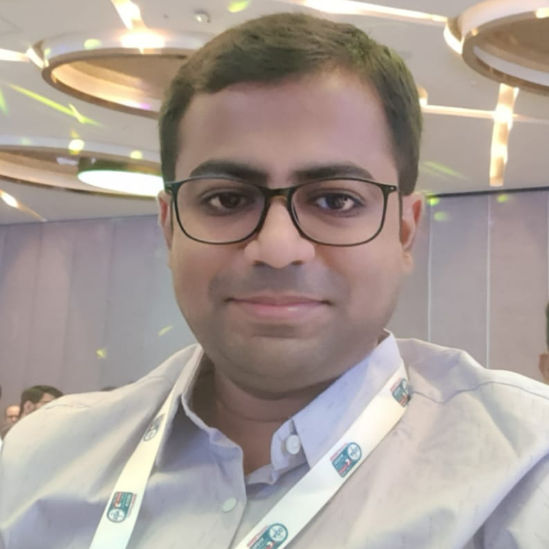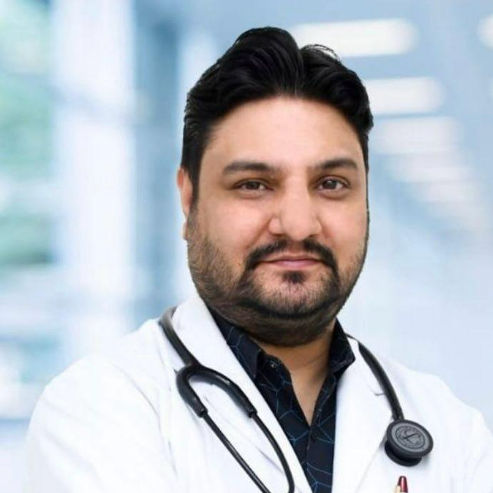Advanced Endoscopy’s Role in Modern Digestive Care
Discover how advanced endoscopy is transforming digestive care with improved diagnosis, treatment, and patient outcomes.

Written by Dr. Mohammed Kamran
Reviewed by Dr. J T Hema Pratima MBBS, Fellowship in Diabetes Mellitus
Last updated on 13th Jan, 2026

Introduction
Digestive health issues, from persistent heartburn to more serious conditions like cancer, affect millions. While standard endoscopies have long been a cornerstone of diagnosis, a new era of precision medicine has arrived. This is the role of advanced endoscopy, a suite of sophisticated, minimally invasive techniques that are revolutionising digestive care. These procedures go far beyond simply looking inside the body; they allow highly trained specialists to diagnose, stage, and treat complex conditions with incredible accuracy often without the need for traditional surgery. This article will guide you through the world of advanced endoscopy, exploring the groundbreaking procedures it encompasses, the conditions it can effectively manage, and the significant benefits it offers patients seeking a faster, less invasive path to healing. Understanding this role is the first step toward accessing the most modern and effective digestive care available today.
What is Advanced Endoscopy? Beyond the Standard Scope
Think of standard endoscopy as a high-definition camera on a cable that lets doctors see the lining of your digestive tract. Advanced endoscopy equips that camera with sophisticated tools, transforming it into a versatile surgical and diagnostic platform. It’s a subspecialty of gastroenterology that utilises high-tech endoscopes with enhanced imaging capabilities and specialised instruments to perform complex procedures through natural body openings.
Advanced Endoscopy vs. Standard Endoscopy: Key Differences
The main difference lies in capability and purpose. A standard gastroscopy or colonoscopy is primarily diagnostic; it visualises the esophagus, stomach, and colon to find the source of a problem like inflammation, ulcers, or polyps. It can take biopsies and remove small polyps.
Advanced endoscopy, however, is often therapeutic. It’s used not just to find a problem but to fix it from the inside. Procedures can include:
Ultrasound: Using sound waves to see through the wall of the digestive tract and examine surrounding organs and lymph nodes.
Precise Surgery: Removing large, pre-cancerous lesions or early-stage cancers.
Opening Blockages: Relieving obstructions in the bile or pancreatic ducts or the esophagus.
Drainage: Draining fluid collections from infected pseudocysts without external incisions.
Consult a Gastroenterologist for the best advice
Key Advanced Endoscopic Procedures and Their Roles
Advanced endoscopy offers minimally invasive solutions for digestive health.
Endoscopic Ultrasound (EUS): Seeing What Others Can't
EUS is arguably the most significant diagnostic advancement in gastroenterology. It combines an endoscope with a miniature ultrasound probe at its tip. This allows the endoscopist to press the probe directly against the wall of the stomach or intestine to get detailed, real-time ultrasound images of organs like the pancreas, liver, gallbladder, and bile ducts that are hidden from the view of standard scopes and external ultrasounds.
How EUS Aids in Diagnosis and Staging
EUS provides unparalleled detail. It is the most accurate method for:
Locating and Biopsying Tumours: It can detect small pancreatic tumours missed by other scans and allows for fine-needle aspiration (FNA) to obtain tissue samples with extreme precision.
Cancer Staging: By visualising the layers of the digestive tract wall and nearby lymph nodes, EUS helps determine how deeply a cancer has invaded and if it has spread, which is critical for planning treatment.
Evaluating Pancreatic Cysts: EUS can characterise cysts and, with FNA, analyse their fluid to determine if they are benign, pre-cancerous, or cancerous.
ERCP: The Gold Standard for Bile Duct Issues
Endoscopic Retrograde Cholangiopancreatography (ERCP) is a classic advanced endoscopy technique used to diagnose and treat problems in the liver, gallbladder, bile ducts, and pancreas. The doctor uses a special side-viewing endoscope and X-ray guidance to navigate to the opening of the bile duct, inject dye to see the ducts clearly on a monitor, and then use tiny instruments to perform treatments like:
Removing gallstones stuck in the common bile duct.
Placing stents to open blocked ducts caused by tumours or strictures.
Relieving jaundice and infections caused by blockages.
Endoscopic Mucosal Resection (EMR) and Endoscopic Submucosal Dissection (ESD)
These techniques are revolutionary for treating early gastrointestinal cancers without surgery.
Removing Early Cancers Without Surgery
When early cancer or large, pre-cancerous polyps are confined to the superficial layers of the esophagus, stomach, or colon, EMR and ESD can often remove them completely. The doctor injects a solution under the lesion to lift it away from the deeper muscle layer, then uses an electrosurgical knife to precisely cut and remove the abnormal tissue. ESD allows for the en bloc (in one piece) removal of very large lesions, providing the best specimen for pathology to ensure complete cancer removal. This non-surgical treatment preserves the organ and drastically reduces recovery time.
Treating Complex Digestive Conditions with Precision
Modern techniques allow targeted care for challenging cases.
Managing Pancreatic Diseases and Cysts
The pancreas is a deep-seated organ, making it a challenge to treat. Advanced endoscopy is key. Through EUS, doctors can drain painful pancreatic pseudocysts by placing stents through the stomach wall. They can also ablate (destroy) pre-cancerous cysts or provide targeted pain relief for chronic pancreatitis by injecting medication to numb nerves (celiac plexus neurolysis).
Addressing Barrett’s Oesophagus and Early GI Cancers
For patients with Barrett's oesophagus (a pre-cancerous condition), techniques like radiofrequency ablation (RFA) use heat to destroy abnormal cells, significantly reducing cancer risk. As mentioned, EMR and ESD are first-line treatments for removing early cancers found in these areas, offering a cure without the need for major surgery.
Solving Complex Motility Disorders like Achalasia (POEM)
Peroral Endoscopic Myotomy (POEM) is a brilliant example of innovation. For achalasia, a condition where the oesophagus cannot push food into the stomach, surgeons once had to operate through the chest wall. POEM allows the endoscopist to create a tunnel within the esophageal wall and carefully cut the tight muscle from the inside, restoring the ability to swallow. It’s a completely incisionless procedure with remarkable success rates.
The Unmatched Benefits of a Minimally Invasive Approach
Minimally invasive techniques are changing patient care for the better.
Faster Recovery and Less Pain for Patients
Because these procedures work through natural openings, they avoid large external incisions. This translates directly into less post-procedure pain, a significantly lower risk of infection and complications, and a much quicker return to normal activities often within a day or two.
Outpatient Procedures: Often No Hospital Stay Needed
Many advanced endoscopic interventions are performed in an outpatient endoscopy unit. Patients can go home the same day after a brief recovery period, avoiding an overnight hospital stay. This is not only more convenient but also reduces the overall cost of care.
Who Performs These Procedures and How to Prepare
Knowing your care team and preparation steps ensures a smoother experience.
The Specially Trained Advanced Endoscopist
These are not routine procedures. They are performed by gastroenterologists who have completed additional, dedicated fellowship training (often 1-2 years) in advanced endoscopy after their standard gastroenterology residency. When seeking these treatments, it's crucial to ask for a specialist with this specific expertise. If your condition requires such a procedure, your doctor can refer you to a specialist, or you can consult a doctor online with Apollo24|7 to discuss your case and get a referral to an advanced endoscopist in your network.
Patient preparation is similar to a standard endoscopy and typically involves a period of fasting to ensure the digestive tract is clear. Your doctor will provide specific instructions based on the exact procedure planned.
Conclusion
The role of advanced endoscopy in digestive care is nothing short of transformative. It has shifted the paradigm from invasive surgery to precise, incisionless interventions, offering new hope and better outcomes for patients with a wide range of complex conditions. From diagnosing elusive pancreatic cancers with EUS to removing early-stage tumours with ESD and restoring swallowing with POEM, these techniques represent the forefront of medical innovation. They underscore a commitment to patient-centered care: treatments that are not only highly effective but also prioritise minimal discomfort and rapid recovery. If you or a loved one is facing a complex digestive health issue, discuss with your doctor whether an advanced endoscopic procedure could be the right path forward. Embracing this technology is key to accessing the most modern, effective, and compassionate digestive care available.
Consult a Gastroenterologist for the best advice
Consult a Gastroenterologist for the best advice

Dr Bhargav Vuppumalla
General Physician/ Internal Medicine Specialist
5 Years • MBBS MD GENERAL MEDICINE
Bengaluru
Apollo Medical Center, Marathahalli, Bengaluru

Dr Harish K C
Gastroenterology/gi Medicine Specialist
15 Years • MBBS MD DM MRCP(UK) (SCE-Gastroenterology and Hepatology)
Bengaluru
Apollo Hospitals Bannerghatta Road, Bengaluru

Dr Rohit Sureka
Gastroenterology/gi Medicine Specialist
15 Years • MBBS, DNB General Medicine, DNB Gastroenterology
Jaipur
Apollo 247 virtual - Rajasthan, Jaipur

Dr. Shivaraj Afzalpurkar
Gastroenterology/gi Medicine Specialist
13 Years • MBBS, MD General medicine (Gold medalist), DrNB (Gastroenterology), MNAMS
Bengaluru
Apollo Clinic, JP nagar, Bengaluru

Dr. Amit Pandita
Gastroenterology/gi Medicine Specialist
10 Years • MBBS. MD (INTERNAL MEDICINE) DrNB (GASTROENTEROLOGY AND HEPATOLOGY)
Delhi
Apollo Hospitals Indraprastha, Delhi
More articles from General Medical Consultation
Frequently Asked Questions
1. Is advanced endoscopy safe?
Yes, in the hands of a trained expert, advanced endoscopy is very safe. While all medical procedures carry some risk (such as bleeding, infection, or perforation), the risk profile is generally much lower than that of traditional surgery. Your doctor will discuss the specific risks and benefits of your procedure with you.
2. How long does it take to recover from an ERCP or EUS procedure?
Recovery is typically swift. After sedation wears off, you may feel bloated or have a sore throat for a day. Most people can resume normal activities, including work, within 24-48 hours. You will need someone to drive you home after the procedure.
3. Will my insurance cover advanced endoscopy?
Most insurance plans, including Medicare, cover medically necessary advanced endoscopic procedures. However, coverage can vary based on your specific plan and the reason for the procedure. It's always best to check with your insurance provider beforehand.
4. What is the success rate of POEM for achalasia?
POEM has a very high success rate, with studies showing over 90% of patients experiencing significant, long-term improvement in their ability to swallow and quality of life.
5. How do I know if I need an advanced endoscopy instead of a standard one?
Your gastroenterologist will make this determination based on your symptoms, medical history, and findings from prior tests (like CT scans or standard endoscopies). These procedures are typically recommended for specific, complex problems like suspected bile duct stones, pancreatic masses, or large pre-cancerous lesions.




